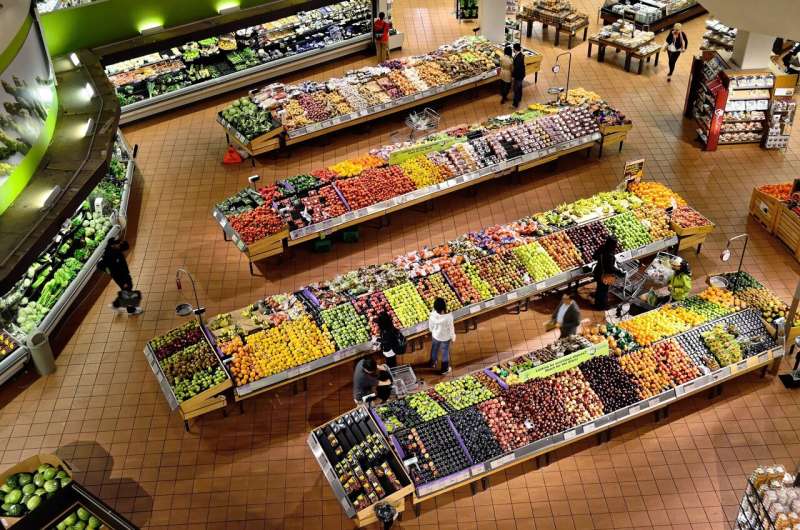Credit: Pixabay/CC0 Public Domain
Switching food and drink purchases to very similar but more environmentally friendly alternatives could reduce the greenhouse gas emissions from household groceries by more than a quarter (26%), according to a new Australian study from The George Institute for Global Health and Imperial College London published today in Nature Food.
Making bigger changes—like swapping a frozen meat lasagna for the vegetarian option—could push the reduction to as much as 71%.
To make this happen will require on-pack labeling of greenhouse gas emissions for every packaged food product so that consumers can make informed choices.
This is the most detailed analysis ever conducted on the environmental impacts of a country’s food purchasing behavior, involving comprehensive data on greenhouse gas emissions and sales for tens of thousands of supermarket products, typical of the Western diet of many countries globally.
Lead author and epidemiologist Dr. Allison Gaines, who conducted the analysis for The George Institute and Imperial College London, said, “Dietary habits need to change significantly if we are to meet global emissions targets, particularly in high-income countries like Australia, the UK, and US.
“But while consumers are increasingly aware of the environmental impact of the food system and willing to make more sustainable food choices, they lack reliable information to identify the more environmentally friendly options.”
2024-05-28 04:00:02
Link from phys.org




















